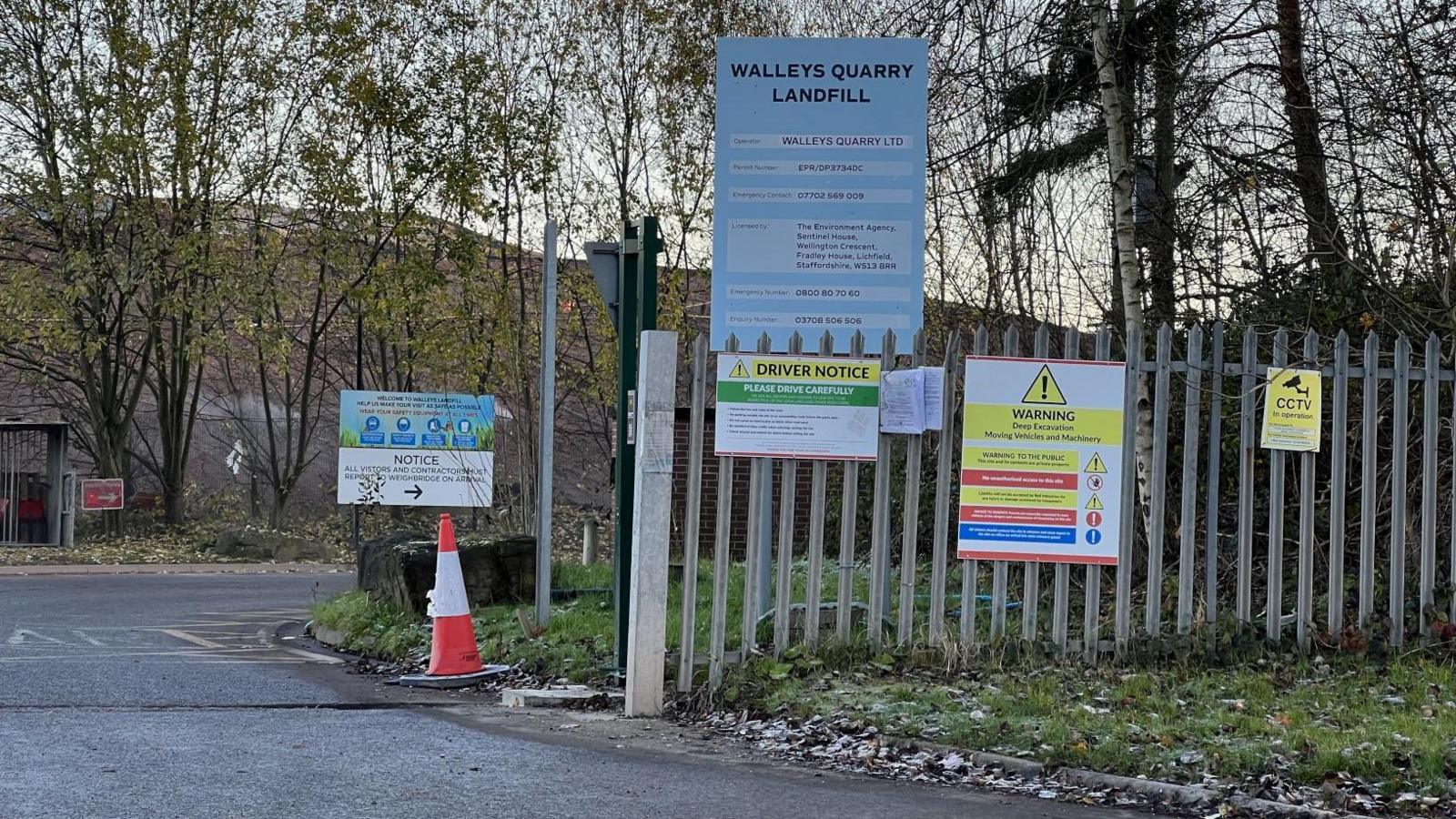Landfill gas like 'torture' for residents - council
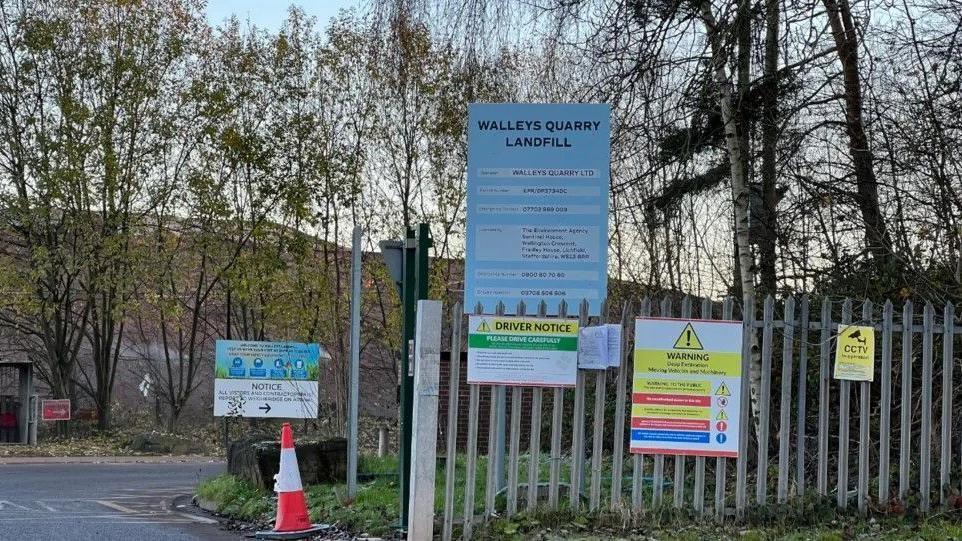
Complaints about the smell at Walleys Quarry span decades
- Published
Councillors in Newcastle-under-Lyme have likened the smell of a nearby landfill site to "torture" for local residents, and are calling for it to be shut for good.
The comments were made at a borough council meeting on Wednesday, in which an inquiry into the smell of Walleys Quarry and its effect on residents was discussed.
The council report said site owners Walley's Quarry Limited (WQL) and the Environment Agency, which regulates it, had failed residents.
The Environment Agency (EA) said it would consider the report, while WQL said it was working to minimise the effects on the community.
"We have every sympathy with the local community and remain committed to maintaining long-term improvements in emissions from Walleys Quarry landfill," an EA spokesperson said.
They added that it required WQL to implement all measures necessary to manage landfill gas, and was committed to securing a long-term resolution.
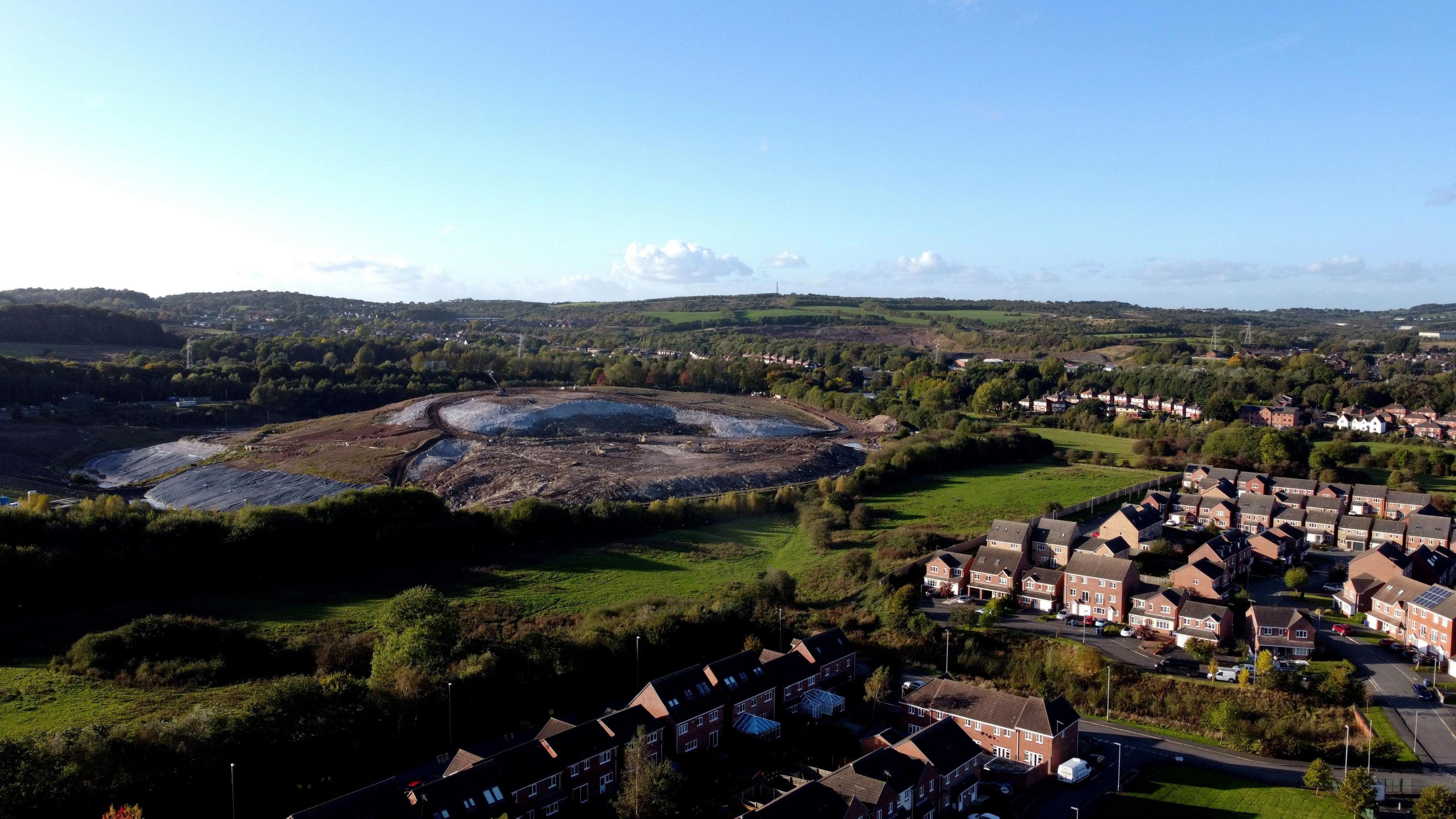
The smell, hydrogen sulphide, is a colourless and flammable gas with a characteristic odour of rotten eggs
The report made 11 recommendations, including the closure, capping, and restoration of the site, as well as a government-led inquiry into the EA's management of it.
It gathered evidence from dozens of residents, as well as local GPs and the UK Health Security Agency (UKHSA).
The council accepted the report and its findings in a unanimous vote.
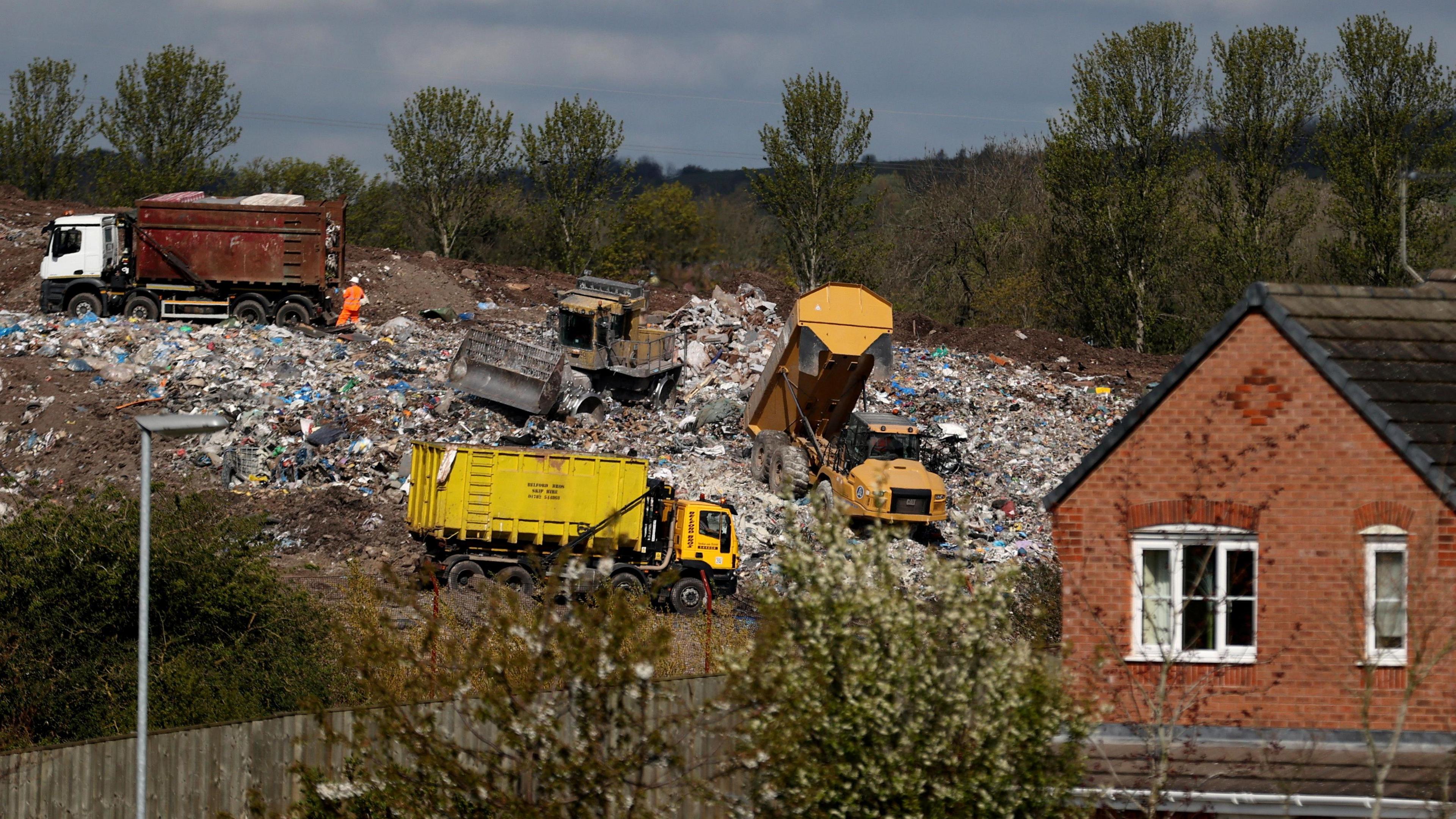
Newcastle-under-Lyme Borough Council wants Walleys Quarry closed, capped and restored
Complaints about the site date back more than a decade, when it was run by a previous operator, but community anger has intensified in recent years.
The outrage has not only been targeted at the operator, but also the regulator - the Environment Agency.
The smell - likened to rotting eggs - is caused by hydrogen sulphide, a colourless and flammable gas.
Some local residents told the council inquiry they had been suffering from a range of symptoms, including headaches, nausea, sleep problems and stress.
A spokesperson for WQL, which refused to attend the inquiry, said the firm recognised the impact that odours could have on residents, and it was focused on managing the site to minimise impacts on the nearby community.
"We’ve heard that residents required anti-depressants or anti-psychotics to be able to function against a background of unpredictable odour levels that’s equivocal to torture," said Councillor David Jones, who was on the Committee of Inquiry.
He added that the situation had put pressures on some families and relationships.
"This is why this inquiry was essential," he said.
'Historic and continuing abuse'
Councillors said they believed the EA was "not fit for purpose", as it had not closed the site, despite years of complaints.
The EA received more than 2,000 complaints in a single weekend in 2021, the same year it faced court action from a family over its regulation of the site.
The organisation ultimately won that case on appeal, but has continued to face accusations of inaction.
More recently, the watchdog was forced to apologise after it emerged some data covering gas emissions at the site, among others in England, had been underreported, due to mis-calibrated equipment.
Deputy mayor, Councillor Andrew Fox-Hewitt, said: "Some of the witness testimonies that were contributed to the inquiry were... frankly shocking, they were upsetting, and the experiences were going on eight, nine, 10 years."
"I think we should never lose sight of the historic and continuing abuse, and the impact that this has on residents."
Council Leader Simon Tagg described the inquiry as a "call to action", and said it was key that the recommendations were taken forward.
"We will not give up on this," he added.
Get in touch
Tell us which stories we should cover in Staffordshire
Follow BBC Stoke & Staffordshire on BBC Sounds, Facebook, external, X, external and Instagram, external.
- Published20 August 2024
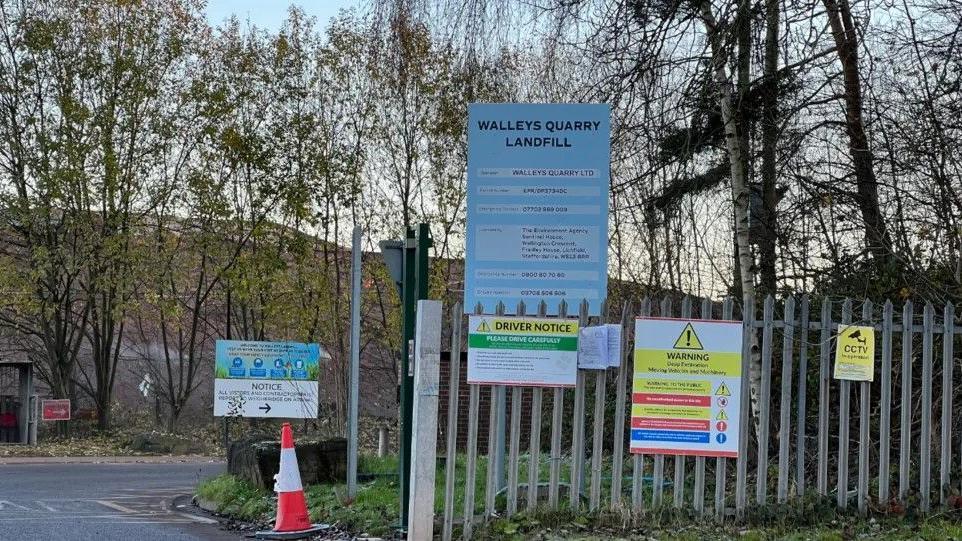
- Published15 August 2024
- Published8 August 2024
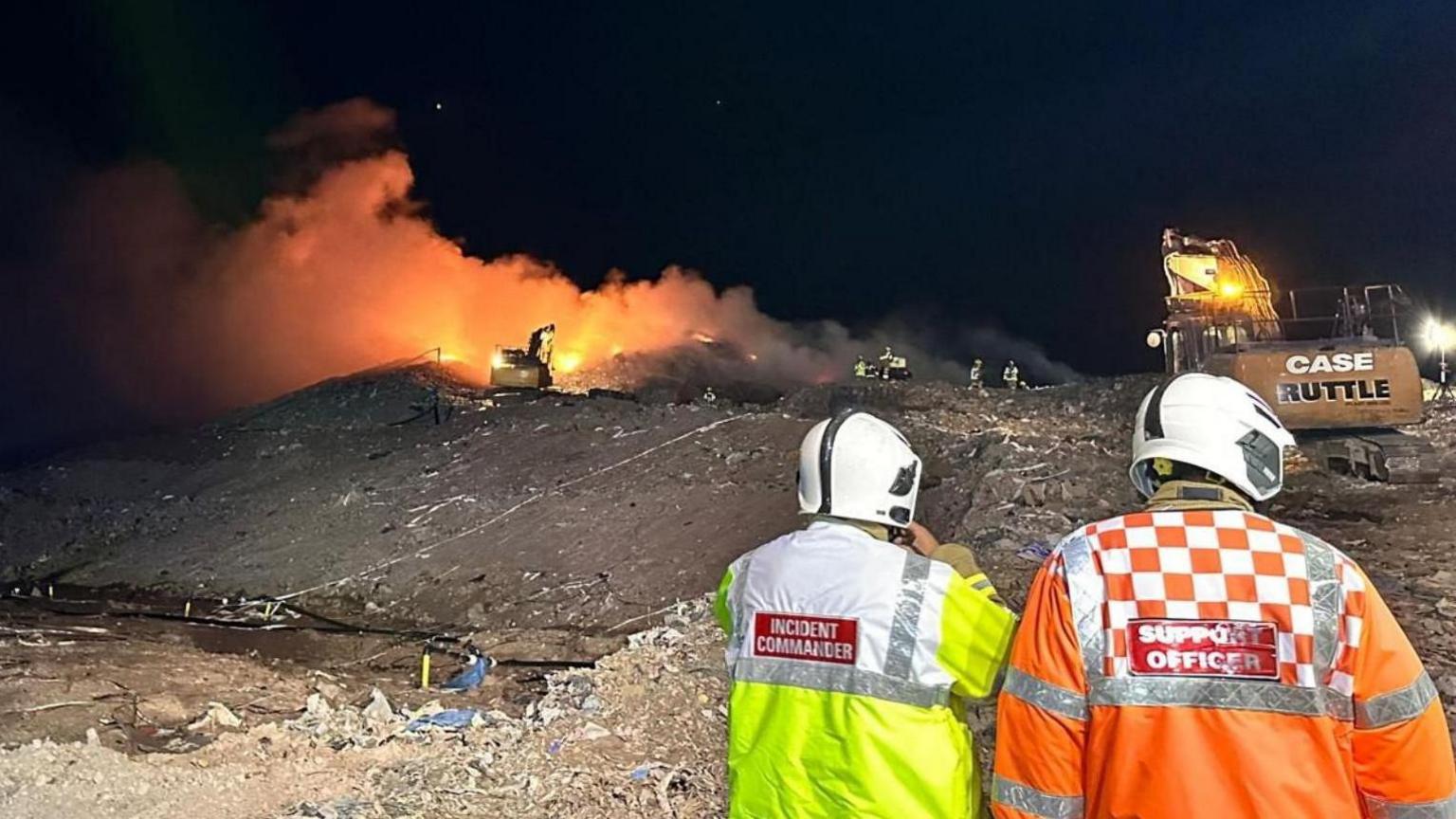
- Published27 July 2024
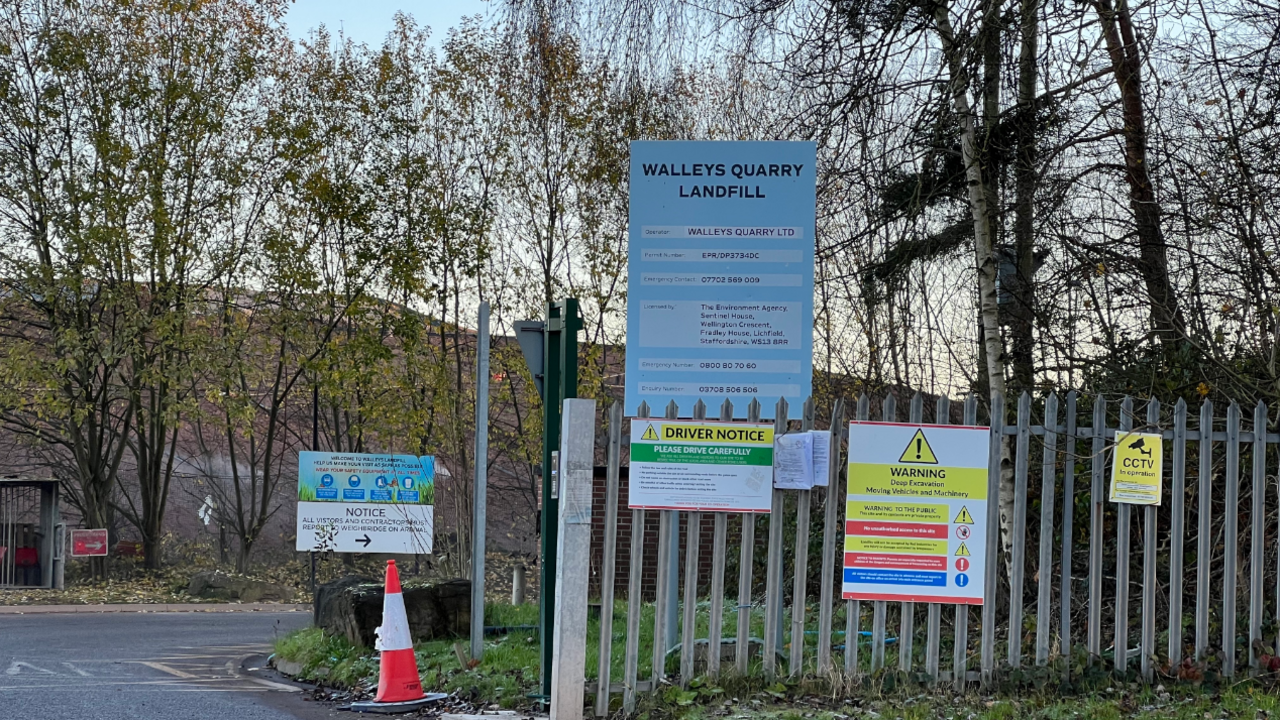
- Published17 July 2024
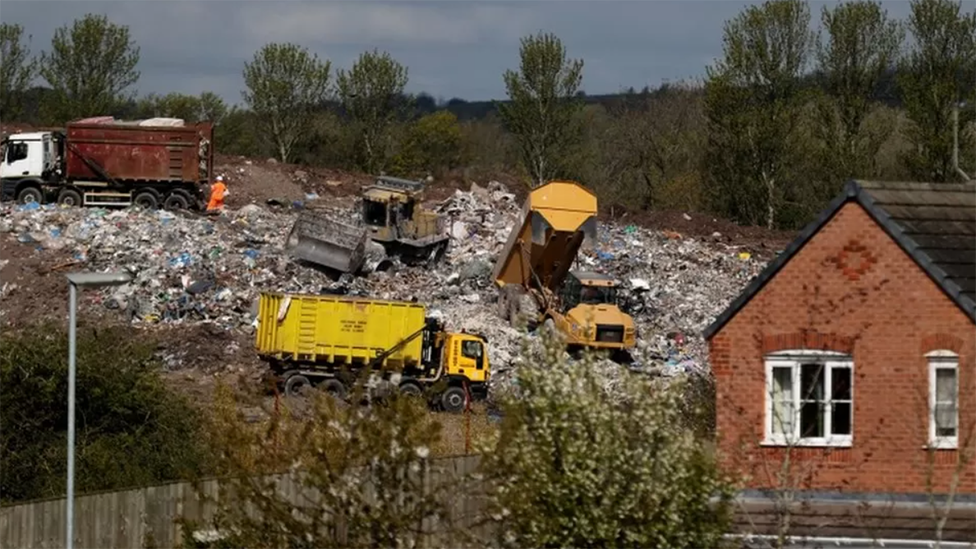
- Published9 June 2024
